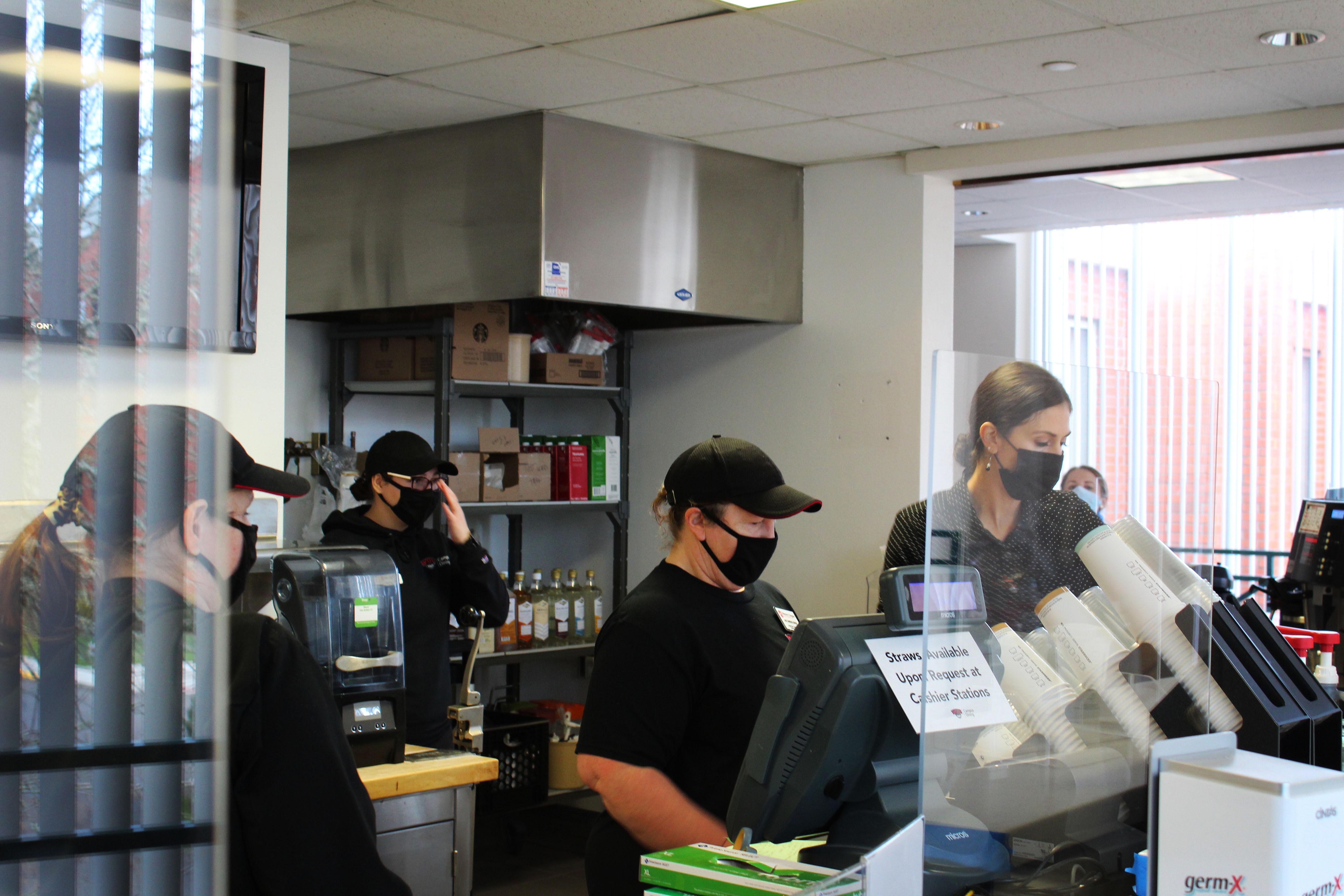Student Government Leaders at Public Universities Across Oregon Call on State to Invest in Financial Aid
N.J. Johnson | ASWOU President
Thursday, March 11, 2021
The Student Body Presidents at University of Oregon, Western Oregon University, Eastern Oregon University, Oregon State University, and Portland State University released a joint letter today to members of the Oregon State Legislature and the Higher Education Coordinating Commission calling for the state to address rising tuition increases and improve governance and oversight of public universities in Oregon, which were deregulated in 2015.
The Letter Reads:
To: Higher Education Coordinating Commission and the Oregon State Legislature
Fr: Oregon Student Association & Associated University Student Governments
Re: Higher Education Priorities for the Legislative Session
Understanding that the effect of COVID-19 and the financial recession that has followed have had immense impacts on students, we the student body presidents of the public universities across the state of Oregon call upon the state legislature to take meaningful efforts to reevaluate the course of higher education funding.
Upon careful assessments of our campus priorities and the needs of students in the midst of this pandemic, this association has determined that emergency investments into the Oregon Opportunity Grant to be a top priority. Currently, less than 1 in 4 students who qualify for the Oregon Opportunity Grant receive the funding. This stands out as a deeply concerning flaw in state distribution of funding. We believe that financial aid investment is a fundamental part of any strategy for long term economic recovery across the state. Students pursuing higher education make up a large portion of the working class population in the state of Oregon, without further financial assistance we anticipate these students will be forced to choose between their pursuit of higher education opportunities and financial stability.
This pandemic has further revealed the inequities of our many social systems. Specifically, under the analysis of the financial distribution to our public universities, we have seen a recurring trend in funding initiatives and projects across state universities that do not directly contribute to the needs of students. While OSA supports investing in safety updates and retrofitting, as well as building equity centers, multicultural student centers, and dreamers resource centers, student needs are not always taken into account when institutions prioritize new building projects. We are well aware of the potential financial recovery that capital construction initiatives offer during these difficult times, however, we weigh the
financial burdens that students are facing as a higher priority for state funding. As it stands, capital construction funding will not directly support the needs of students, especially when these projects have projected completion dates years in the future. University administrations have argued that investments in capital construction will mitigate the enrollment crisis and make education more affordable. Instead, the data collected over the last decade shows enrollment declines and alarming tuition increases. We are asking that students and the needs of students be a direct priority during this session. We ask that legislators work with students to reevaluate and reimagine the incentives, governance, and priorities of our public universities.
Thus, we the student body presidents of the public university in the state of Oregon call upon the legislature to make meaningful emergency investments into the Oregon Opportunity Grant to aid financially suffering students during the long session. We call upon the legislature to support students calls for increased transparency and accountability on public universities to ensure funds are directly supporting students’ needs. Lastly, we call upon the legislature to oppose the ongoing drift towards privatization of our public universities through planning for meaningful investment and meaningful governance reform.
Signed,
Isaiah Boyd, President Associated Students of University of Oregon
N.J. Johnson, President Associated Students of Western Oregon University
Keegan Sanchez, President Associated Students of Eastern Oregon University
Motutama Sipelii, President Associated Students of Portland State University
Isabel Nuñez Perez, President Associated Students of Oregon State University
In the five years since the Oregon University System was dismantled and institutional boards were put in place, tuition has increased by 18.5%, a faster rate than the five year span directly leading up to the end of the Oregon University System. This leads to massive inequities in higher education access. At the University of Oregon, for instance, there are about as many students whose household income is in the top 1% of income earners as there are students whose household income is in the bottom 20%.
Meanwhile, private fundraising at the universities which students were told would go to help keep tuition down has gone instead to high profile construction projects, often with little formal student input. In the 17-19 biennium, the state of Oregon allocated $330.8 million to capital construction projects at universities. This is more than twice the amount allocated to financial aid that year–the Oregon Opportunity Grant received $146.1 Million. A white paper published by SEIU Local 503 in 2019 demonstrates that from 1999 to 2019, the share of state financial support for universities going to construction debt servicing rose from less than 3% all the way to 16%.
Of the letter, ASUO President Isaiah Boyd said: “In this past year, the Covid-19 epidemic has demonstrated the growing flaws in our systems of higher education. We’ve witnessed the socioeconomic issues faced by students pursuing higher educations become all the more exacerbated. Higher education pursuits across the country are reaching the critical point where students will no longer have the financial stability to go after their dreams.”
NJ Johnson, student body President at Western Oregon University said: “With the unsustainable increases in tuition correlated with statewide enrollment decline, now is the time to invest meaningfully in access and affordability to end this cycle.”
For more information, contact ASWOU President N.J. Johnson by phone at (503) 838-8555 or by emailing aswoupresident@mail.wou.edu; or, contact ASUO President Isaiah Boyd by phone at (541) 346-0624 or by emailing asuopres@uoregon.edu






